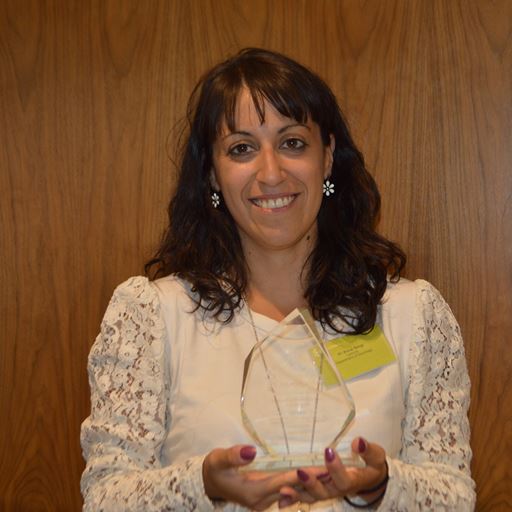Essex research making an impact on people’s lives
-
Date
Fri 22 Jun 18

The difference Essex research is making on people’s everyday lives was celebrated at our annual Research Impact Awards.
This year’s event was bigger than ever before – around 90 people attended and there were 21 short-listed projects in eight categories. Many of the projects highlighted the different ways we are helping local, national and international governments provide better services while being more efficient.
This included the use of EUROMOD, the Essex-developed system which allows governments to use the latest tax and benefits information to assess the potential impact of policy changes before they are implemented; the Catalyst Project, which is helping Essex and Suffolk county councils to target services where they are needed most; and a project to redesign health and social care services in Essex to provide better services to an aging population, with increasingly complex needs.
Other projects included work on improving the lives of refugees and military veterans suffering from post-traumatic stress disorder; on tackling the Mafia in Australia and the invention of a microscope which allows scientists to observe the smallest organisms without damaging what they are looking at, and a device to help opticians use coloured lenses to improve vision.
Professor Christine Raines, Pro-Vice Chancellor (Research) said: “At Essex we want our research to help make the world a better place, and this event showcased the wide range of excellent projects we are involved in demonstrating we are having an impact across our three faculties in projects that span from improving public services to developing novel technologies.”
Our guest speaker Melanie Knetsch, from the Economic and Social Research Council (ESRC), shared her thoughts on the global impact of research providing insight into how the impact agenda will evolve in the future.
The Research Impact Awards winners
Best UK Public Policy Impact
Informing policy making in the Scottish Parliament
Dr Paola De Agostini, Institute for Social and Economic Research
Best local or regional research impact
Assessing the value of time-banking
Dr Jason Glynos, Department of Government, Savvas Voutyras, Essex Business School, Dr Ewen Speed, School of Health and Social Care
Best International Research Impact
Improving the lives of refugees
Professor Renos Papadopoulos, Department of Psychosocial and Psychoanalytic Studies
Enterprise and Innovation
Boosting business through targeted marketing campaigns
Dr Aris Perperoglou, School of Mathematics, Statistics and Actuarial Science, Ilan Fridman Rojas and Henrik Nordmark, Profusion
Creative and cultural
Disobedient Objects and Cruel Designs
Dr Gavin Grindon, School of Philosophy and Art History
Early career – humanities
The ethics of powerlessness
David Batho, School of Philosophy and Art History
Early career – social sciences
Fighting the mafia in Australia
Dr Anna Sergi, Department of Sociology
Early career – science and health
Effective help for trauma victims
Mark Wheeler, Department of Psychology
There were also awards for academics whose articles in The Conversation attracted the most reads in the last year.
The Conversation is an independent website which asks academics to use their expertise to analyse the latest news. Articles are often re-published in other print and online media. In the past year 43 Essex academics have written more than 60 articles, which were read by over 2.6 million people.
The Conversation Awards winners
Faculty of Science and Health
Dr Nicolas Geeraert – ‘How Knowledge about different cultures is shaking the foundations of psychology’. Close to 180,000 reads.
Faculty of Social Sciences
Professor Rob Johns – ‘Will the prospect of £4,100 per voter deliver Scottish independence?’ Over 500,000 reads.
Faculty of Humanities
Vivian Ng and Catherine Kent – ‘Smartphone data tracking is more than creepy – here’s why you should be worried.’ Over 65,000 reads.



